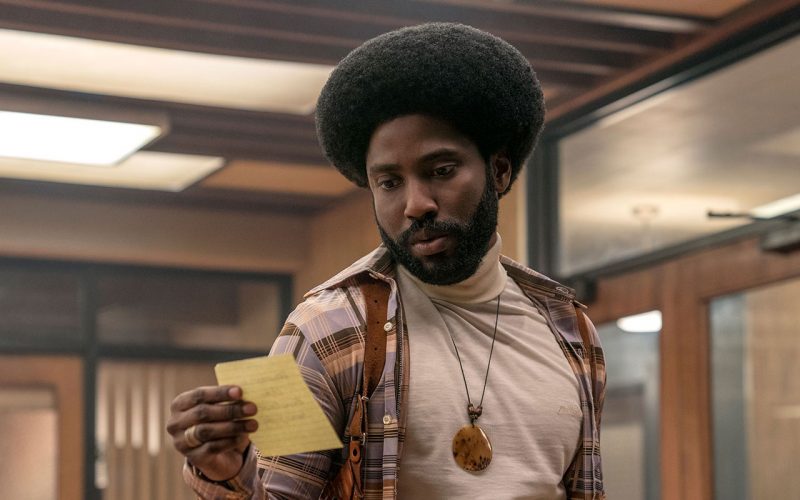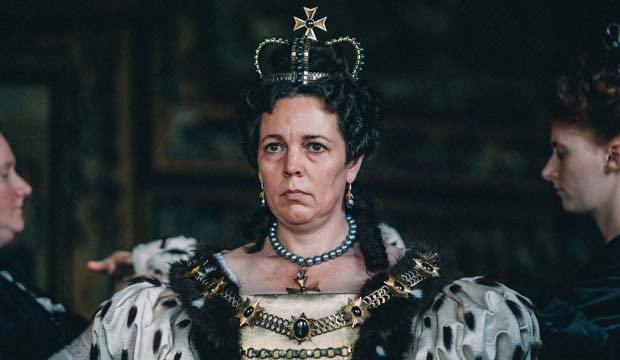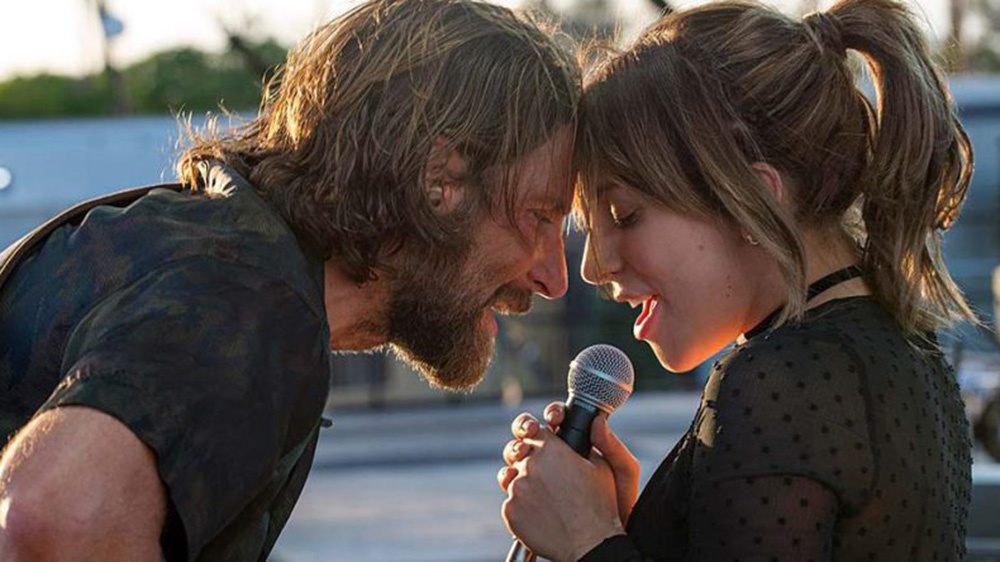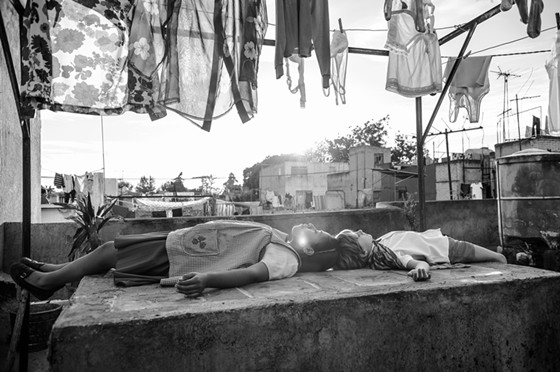4. BlacKkKlansman (Spike Lee)

29 years after Spike Lee’s lacerating Do The Right Thing was snubbed at the Oscars (not even nominated for Best Picture) in favour of Driving Miss Daisy, history is in danger of repeating itself, BlacKkKlansman currently pitted against feel-good interracial road movie Green Book.
There’s no doubting that Spike’s film, once again, is the better achievement, a rip-roaring statement against racism that’s as funny as it is terrifying. It tells the true story of Ron Stallworth (John David Washington) an African-American cop in Colorado Springs who infiltrated the KKK.
Its appeal is based on the fact this really happened. This is no mere comedy but a look at simply how stupid hate-filled racists truly are. A blend of agitprop, romance and police film tropes, BlacKkKlansman is the kind of film that Spike Lee had been aiming towards in years.
While some critics, including Sorry To Bother You director Boots Riley, accused it of being a black story made for liberal white consumption (and there seems to be some unlikely scenarios in the film, especially the feel-good firing of a racist cop), its ending shows exactly where the blame for current white supremacy lies: The White House. If only more cinema was this pointedly made.
3. The Favourite (Yorgos Lanthimos)

Since breaking out onto the international arthouse scene with Dogtooth, few would’ve thought that Yorgos Lanthimos would actually make it as a prestige filmmaker. The Greek auteur’s films are too weird, too personal and too stylistically innovative to actually be nominated for Oscars, right? Somehow he has proven everyone wrong — not by changing his style, but by casting famous English and American actors in the main roles and giving them the best performances of their career.
The Favourite may not be his best film — I would still say The Lobster is a work of magic — yet it is his most film; a riotous exploration of Early 18th Century England that boasts three amazing turns by Emma Stone, Olivia Coleman and Rachel Weisz respectively.
Deploying a surrealistic fish-eye lens and a wide-screen frame, Lanthimos actually looks into the weirdest parts of England court life during that time, liberating the period drama from boring BBC adaptations and making it truly vital again.
Add in lesbian romance, costumes to die for, and actresses chewing on their roles with absolute relish, and the final product is a complete riot, a triumph for both arthouse and British cinema. Here’s hoping Lanthimos continues to dominate the Oscars for many years to come. We need him.
2. A Star Is Born (Bradley Cooper)

A Star Is Born may be the fourth incarnation of a story that has been going on since the 1930s, but in many ways it’s the best one yet. Nearly every scene and every beat feels precisely engineered by first-time director Bradley Cooper to feel deeply authentic. In the best bit of stunt casting in years, he cast Lady Gaga as the young ingenue — and she can act as well as he learned how to sing.
Based in the world of alt-country rock, he plays Jackson Maine, an alcoholic rockstar who spots Ally (Lady Gaga) singing “La Vie En Rose” and instantly knows she will be a star. The first third of the movie is the closest thing to cinematic perfection, constantly building in anticipation until Gaga belts out Oscar winning song “Shallow” with everything she’s got.
The rest of the film may not live up to this initial promise yet its tragic love story is anchored by two barnstorming performances by both Cooper and Gaga, as well as Sam Elliott’s brilliant turn as Maine’s older brother. The songs are catchy, the conflicts finely-tuned and the screenplay rings with authenticity. Nearly no one predicted it would be this good.
1. Roma (Alfonso Cuarón)

The culmination of Alfonso Cuarón’s career, Roma is perhaps the most unlikely movie to ever dominate a Best Picture line-up. It’s slow. It’s in black-and-white. It’s in a mixture of Spanish and Mixtec. It focuses on the life of a maid.
Somehow it’s one of the best films of the year, an astonishing homage to the resilience of one woman played out against the backdrop of civil unrest. Using an Alexa 65mm camera, and taking on cinematographic duties himself, Cuarón explores the full possibility of the frame, putting his film heads and shoulders above the competition.
Simply for its technical prowess alone — its depth of focus, its exquisite use of lighting and revolutionary sound mix — Roma should win Best Picture. There are obvious cinematic influences, among them the riotous nature of Fellini and the slow, searching camera of Angelopolous, but here he combines all his personal obsessions — motherhood, sex, heaven and earth, being simultaneously inside and outside politics — into a complete cinematic vision.
The fact that it is no mere director’s showcase but also tells a deeply moving story of finding love despite all of the odds makes Roma a modern classic, fully deserving of its Fellini-evoking name.